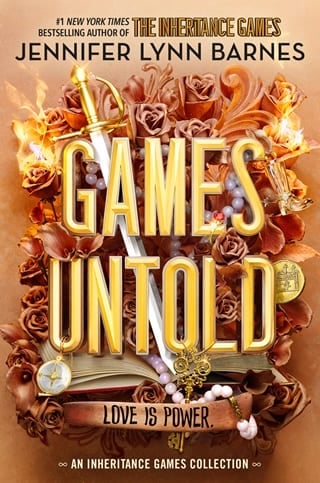Then
Then
T he cowboy is looking at me. It’s not a fleeting kind of look. Nash Hawthorne’s gaze is like a gentle, calloused thumb brushing lightly over my cheekbone, just under my blackened eye.
“What happened here?” His voice is a low and even murmur. No machismo. No swagger. No pity, either. But it’s clear that I have Nash’s attention. All of it.
I raise my chin. “I’m fine.”
“I can see that.” His voice is whiskey-smooth and steady in a way that makes me think that he could walk through fire and not even blink. “But if you decide you’d like to give me a name?” There it is again—the feel of his gaze, the lightest of touches. “I’d take it.”
His eyes are brown, darker around the outside and center of his irises and almost amber in between. The expression in those eyes is measured—but deep. This cowboy would very much like the name of the man who gave me a black eye, but somehow, Nash doesn’t feel angry to me. Every instinct I have says he isn’t the stormy type.
Nash Hawthorne is pale blue skies. He’s grass and mud. He’s steady .
And I probably shouldn’t even be looking at those amber-and-mahogany eyes of his, because even the daydreamer in me knows that steady and gentle and good would never be interested in me.
 Fullepub
Fullepub 



